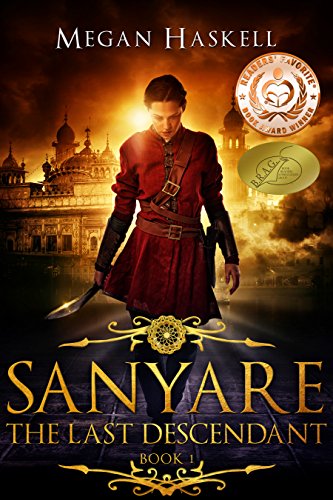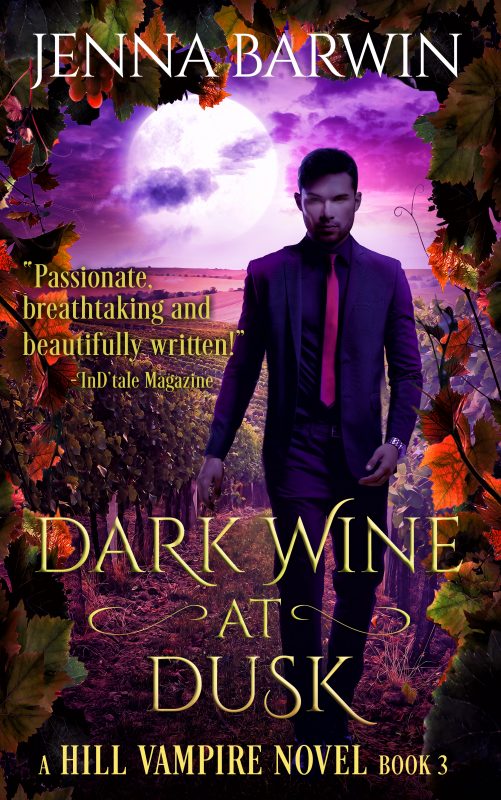Celeste Barclay Talks About Her Vikings
July 2, 2019 by Jann Ryan in category Jann says . . . tagged as Celeste Barclay, Clan Sinclair, Vikings

We are traveling back in time to the days of Vikings with author Celeste Barclay!
Jann: The Clan Sinclair series released in April, 2018 is a great success. Will you still write more books for the Clan Sinclair?
Celeste: I will be returning to the Highlands before the year is out. I left room for characters who had cameos in His Highland Pledge and His Highland Surprise to have their own stories. The new series is tentatively called Highland Ladies and will be a spin off from The Clan Sinclair, following several of the ladies in waiting at Robert the Bruce’s court.
Jann: Why did you decide to start a Viking series? How long did it take you to research for this series?
Celeste: As a new author, I was still trying to find my groove. Vikings interest me, and I’ve read numerous Viking romances. After I finished The Clan Sinclair, which was always intended to be five full lengths with a prequel novella, I wanted to try my hand at Vikings. I’ve enjoyed writing this series since some of the social norms are so different for couples; there’s more freedom in many ways to write a steamy story. Much of the historical information included in the books comes from my own running knowledge of European history, which I’ve studied and taught. The smaller details were researched as ideas came to my head, such as, wedding rituals. I couldn’t say exactly how long it took since I fell through the rabbit hole more than once, but the added knowledge is never a waste.
Jann: Leif, the first book in the Viking Glory series released on March 25th this year. For this book, which came first—plot, character or scene?
Celeste: I’ve been asked this type of questions before, and the answer is yes. They all come together roughly at the same time, but a scene is usually how it starts. My mind wanders as I’m falling asleep and scenes will form. If my brain returns to the same scene more than once, and the scene grows each time, then I know I have a story I want to tell. It germinates and flowers all at the same time.
Jann: Leif and Sigrid are wonderful characters. I loved them. Would you tell us today how they came about and their love story?
Celeste: I like reading and writing alpha males, but each of my male characters is willing to acknowledge his need for an equally strong female partner. I’ve read plenty of arranged marriage stories and even written them, but I wanted this to be a reverse arranged marriage where one family refused to consider it. I thought it would be interesting to have one character not only know, but see, the future relationship while the other had no idea. I wanted to create a female character who was strong enough to live a life with as many uncertainties as there were certainties, and one who could be patient as life progressed. Vikings believed heavily in the power of fate, so knowing that, it made it easy for Leif to fall in love quickly with Sigrid. Readers who might not know that about the Viking culture might wonder how their relationship could develop so quickly, but people do talk about love at first sight. There’s some of that in this story too.
It’s not an easy relationship when one person knows what will happen and the other is in the dark. It’s hard to be the one who must hold secrets while it’s just as hard to be the one who is left out. I wanted Sigrid and Leif to show their commitment to one another despite this sizable challenge. As a seer, Sigrid could only convey the events the gods planned; she could not influence them. Leif shows his commitment to Sigrid through his faith in her gift and his willingness to trust her. They could each have simply accepted their fate and that marriage was their destiny. Instead, they choose to build a solid and loving relationship the way they want and need it.
Jann: In this first book, your introduction of Freya, Bjorn, Strian and Tyra is fantastic. I can’t wait to read each of their stories. From your website, I see that Freya’s is next. Can you share a little bit about her story?
Celeste: Freya released at the beginning of June, and it was a fun story to write. She’s torn between her self-proclaimed need to prove herself as a shieldmaiden along her need to prove she can be jarl’s wife capable of running a home. She’s insecure in ways no one expects, and her persona of being fierce and untouchable is one she created as a protective wall. She doesn’t let many people get close, and Tyra is her only female friend before she meets Sigrid. She’s prickly and mercurial when she meets Erik because of her insecurities. She isn’t easily convinced that he won’t love her and leave her, so she pushes him away instead. Erik is persistent and is determined to prove he is not just there for the chase. I wanted to include a male character who once again is an alpha but has more insecurities than most alphas would ever admit. He’s in awe of Freya, believing she could have any man she wanted, so when she does finally relent, he is terrified she will decide he’s not enough. It’s the hero’s turn to worry that the heroine will find someone “better.” Forced to travel and work together, they realized they are far more alike than either realized. While they thought it was opposites attract, they discover they are so similar that they complete one another.
I haven’t announced the third book yet, but suffice it to say, there are five friends and only four books. I think most readers have predicted which two will be paired together, but their story has far more history than anyone knows yet. The final character has had a troubled life with loss and more recent betrayal, so when part of the past comes back, our final character isn’t sure whether it’s just familiarity or real love that is at play.
Jann: What’s the strangest thing you’ve had to research?
Celeste: This isn’t necessarily strange since plenty of historical authors have to research homeopathic remedies to make cures sound realistic to the Middle Ages, or at least pre-penicillin. I was away with my family this weekend in a little mountain town, and the nature center had an amazing tri-fold with pictures and descriptions of medicinal plants. I was entirely too excited about it. I kept thinking how my author friends will be jealous when I tell them about this since I no longer need Google or massive texts! I have it all on a handy pamphlet.
Jann: What profession did you think you would have when you were 10?
Celeste: I had every intention of being an international corporate lawyer. I even had that intention when I started law school! Life happens, plans change. I’ve been a teacher for nearly 15 years, and now I’m an author too. Slightly different than what I envisioned at 10.
Jann: Celeste, it has been a real pleasure talking today. Thank you for opening a window into your life.
Celeste Barclay’s Books
July Featured Author of the Month: Tari Lynn Jewett
July 1, 2019 by Tari Jewett in category Featured Author of the Month tagged as #FireworksintheFog, #HeromsaForTheHolidays, #PleaseSayYes, Charmed Writers, romantic comedy, Tari Lynn Jewett
Tari Lynn Jewett lives in Southern California with her husband of nearly thirty years (also known as Hunky Hubby). They have three amazing sons, a board game designer, a sound engineer and a musician, all who live nearby. For more than fifteen years she wrote freelance for magazines and newspapers, wrote television commercials, radio spots, numerous press releases, and many, MANY PTA newsletters. As much as she loved writing those things, she always wanted to write fiction…and now she is.
She also believes in happily ever afters…because she’s living hers.
https://twitter.com/TariLynnJewett
Book giveaway
Tari’s giving away one signed paperback copy of her first romantic comedy, #PleaseSayYes. For a change to win Tari’s book all you have to do is leave a comment on one of her posts this month (July 2019). There are, or course, a few rules:
- You must be 18 years or older to win.
- You must reside in the United States.
- Winner will be selected by a random drawing on July 31, 2019 and announce on A Slice of Orange August 4, 2019.
- If the winner selected doesn’t claim the book by August 11, 2019 by providing us with their mailing address, we’ll select another winner or donate the book to a library.
- Odds of winning the book will depend on the number of people leaving comments.
Excerpt
#FireworksintheFog
Tari Lynn Jewett
The Beach Break Coffee Bar was crowded and the girls squeezed through the throng of people to get to the table Evan was holding for them.
“It’s nice to be connected.” Ashley said as she slid into the seat next to Lucy.
Lucy smiled and started to respond just as Ashley smacked her on the arm. “Nooo,” she groaned. “That’s him over there.”
All three of her friends turned to look in the direction she’d pointed. Five good looking guys sat at a table laughing and drinking beer.
“Which one is he?” Mindi asked.
“He’s the jerky one.”
“You’ll have to be a little more descriptive.” Randi said. “I mean, they all look pretty friendly to me.”
“The one in the grey T-shirt. Don’t let that boyish smile fool you. He’s not nice.”
“I don’t know,” Mindi said. “I think he looks very nice. Look at the way that shirt hugs his biceps. Wish he’d turn this way so I could get a better look at his face.”
“What’s his name?” Randi had to raise her voice to be heard over the band who had moved back onto the stage and were warming up their instruments.
“Officer Lopez,” Ashley answered, trying to be heard over the music.
“What?” Randi raised her voice again.
“Officer Lopez!” Ashley said loudly just as the band stopped and the coffee bar buzz dropped to a din.
Officer Lopez and his buddies all turned to see who had shouted his name, and the lead singer of Reflective Lenses who was already standing in front of the mic picked it up.
“Officer Benny Lopez, you’re not even in the band, and cute girls are shouting your name. How’d you do that?”
Laughter rippled through the little coffee bar and Ashley considered crawling under the table.
“It’s okay Ashley,” Lucy said, “Evan just had a new refrigerator delivered. I’ll go get the box. We can smuggle you out of here without anyone seeing you!”
At least Randi tried to hide her smile, but Mindi made no effort to contain her amusement.
Tari Lynn Jewett’s Books
Dear Extra Squeeze Team: How do I get critiques on my WIP but prevent plagiarism?
June 30, 2019 by The Extra Squeeze in category The Extra Squeeze by The Extra Squeeze Team tagged as copyrights, critiques, HO Charles, Jenny Jensen, Plagiarism, Publishing Questions, Rebecca Forster., Robkin Blakely, The Extra Squeeze, Writing Questions

Dear Extra Squeeze Team: How do I get critiques on my WIP but prevent plagiarism?

Rebecca Forster
USA Today Bestselling author of 35 books, including the Witness series and the new Finn O’Brien series.
In my 30+ year career, I have never worried about plagiarism. Most working authors don’t need to plagiarize your work, they have plenty of their own to worry about. New authors have their own ideas and probably will think they are on a better track with their own ideas. Keep your nose to the grindstone, listen to solid critiques and move forward.

Jenny Jensen
Developmental editor who has worked for twenty plus years with new and established authors of both fiction and non-fiction, traditional and indie.
Jenny is still on vacation time. She be back next month with The Extra Squeeze Team.
Robin Blakely
PR/Business Development coach for writers and artists; CEO, Creative Center of America; member, Forbes Coaches Council.
It is never wrong to take precautions with your work. My best suggestion for preventing plagiarism at the critique stage of the writing process is simple. Don’t share your work with people who have not been vetted in some way to earn your trust. If you doubt the integrity of the people that you are sharing your material with, their opinions about your writing should also be in question. If you have any qualms that your ideas could be stolen by the circle of people you willingly handed your work over to, then tighten your circle. Your work is your business. In any business, great ideas can be at risk of idea theft. Copyrights, trademarks, and non-disclosure agreements all exist to help enforce your rights. Look into those options. But realize that in the critique stage, prevention is a more powerful tool than policing the issue after it happens.
And, on the flip side, protect yourself. Accusations of idea theft or plagiarism is a two-way street. In a critique group, it is important to understand the parameters of collaboration. You may be asking other people to give you their opinions and contribute their ideas to your unfinished piece, but that also has limits that need to be established and clearly understood. It is possible that in a critique setting, your work may be the catalyst for a bigger and better idea than you imagined. If that bigger and better idea comes to light and is identified by someone, it is important to know how to properly handle that situation. It all starts with trusting who is at the table and taking the time to establish and understand the game rules before any of your work is read by anyone.
H.O. Charles
Cover designer and author of the fantasy series, The Fireblade Array
This genuinely is worth considering as ideas get stolen all the time (paranoid, me??). Sometimes plagiarism is not even committed consciously by the perpetrator. We absorb sentences and word structures and ideas all the time as we move through life, so it’s inevitable that we will reproduce bits and pieces of these when we get creative. If you’re sharing your work with a fellow creative, it should be accepted that you are going to influence them at least a little bit. If they churn out whole chunks of an original work or copy an entire plot without acknowledgement, it is quite different.
First, I’d advise using only people you trust to do your first run of read-throughs and critiques. If they’re your friends, they might not be as tough on your work, slightly biased etc., but it’s better than nothing at all. After that, there are copyright registration places if you live in the UK, but they are pointless in my opinion (we do not have a copyright office here – the US does). They won’t act for you legally if someone steals your work, and will take a small fee to register a copy of your work on the date you submit it. But if you have the raw, dated file stored on your computer, then you can just as easily prove you are the owner of the original work anyway. The law is different between the UK and USA, and elsewhere, so it is worth looking into copyright before you share your work with anyone.
June Featured Author: Denise M. Colby
June 29, 2019 by Denise M. Colby in category Featured Author of the Month tagged as Christian Historical Fiction, Denise M Colby, Marketing, Social Media, writing

Denise M. Colby loves to write words that encourage, enrich, and engage whether it’s in her blog, social media, magazine articles, or devotions. With over 20+ years’ experience in marketing, she enjoys using her skills to help other authors. She treasures the written word and the messages that can be conveyed when certain words are strung together. An avid journal writer, she usually can be found with a pen and notepad whenever she’s reading God’s word. Denise is writing her first novel, a Christian Historical Romance and can be found at www.denisemcolby.com
She’s a member of RWA, OCC/RWA, Faith, Hope & Love Chapter of RWA, ACFW (where she is a semi-finalist in the Genesis contest Historical Romance Category), OC Chapter of ACFW, and SoCal Christian Writers’ Conference (where she will be teaching two workshops in June – Brand and SEO Marketing for Your Website).
In addition to Denise’s column The Writing Journey on A Slice of Orange, you can read some of her magazine article here.
Denise M. Colby’s Books
Quarter Days: Queen Victoria, Mangoes, and Book vs. Film
June 28, 2019 by Alina K. Field in category Quarter Days by Alina K. FieldGreetings and happy summer!
 A few ideas popped up for this post, but since I write historical fiction, I decided to honor Midsummer by talking about Queen Victoria, with a passing mention of mangoes.
A few ideas popped up for this post, but since I write historical fiction, I decided to honor Midsummer by talking about Queen Victoria, with a passing mention of mangoes.
June 28, 2019, is the 181st anniversary of the coronation of the nineteen-year-old Queen Victoria. Her stable and fecund marriage and her famous stodginess has branded the looooong years of her reign in the same way the post-World War II 1950s are remembered as Ozzie and Harriet-land.
For someone so stuffy and boring, Victoria has managed to stir up a lot of twentieth and twenty-first century publicity. The movie Mrs. Brown depicted her long and intimate friendship with Scottish servant, John Brown; The Young Victoria covered her early life, marriage and court intrigues; and of course, there’s the PBS mini-series about her which just finished its second season.
Her most recent depiction in film is Victoria and Abdul. The movie features the “Munshi-mania” surrounding her close friendship with another much younger and much more-foreign-than-a-Scotsman male servant. Abdul Karim, a Muslim Indian from Agra, became her teacher, or “Munshi”.
Back to our June fruit
 Last year Victoria’s name popped up when the Wall Street Journal featured an article by novelist Chandrahas Choudhury about the 1663 varieties of Indian mangoes. Persuaded by her Munshi’s praise of the “Queen of Fruit”, Queen Victoria ordered her household to import mangoes from India. They were, predictably, “off” because of the fruit’s short shelf life.
Last year Victoria’s name popped up when the Wall Street Journal featured an article by novelist Chandrahas Choudhury about the 1663 varieties of Indian mangoes. Persuaded by her Munshi’s praise of the “Queen of Fruit”, Queen Victoria ordered her household to import mangoes from India. They were, predictably, “off” because of the fruit’s short shelf life.
I personally don’t like mangoes, but Choudhury has an explanation for that:
Whichever god brought forth the mango, she did so as a project that would frustrate imperial desires in the 19th century and defeat even the global supply system of capitalism in the 21st. That’s why almost all the mangoes in American markets are the fine-looking but bland, fibrous pretenders from Florida, Brazil or Mexico, not the storied ones of India.
Someday maybe I’ll get to visit India and sample a true Queen of Fruit.
Victoria and Abdul
 Motivated by the mango story, I watched the movie Victoria and Abdul and started the book on which the movie is based. Shrabani Basu’s book is a beautifully written work of nonfiction. She delves into the patronage culture of Victoria’s court and British colonialism to tell the story about the deep friendship between the Queen and Karim.
Motivated by the mango story, I watched the movie Victoria and Abdul and started the book on which the movie is based. Shrabani Basu’s book is a beautifully written work of nonfiction. She delves into the patronage culture of Victoria’s court and British colonialism to tell the story about the deep friendship between the Queen and Karim.
When the elderly Queen Victoria is smitten by young Karim, the court is appalled at their growing friendship and the gifts she showers on him as he tutors her in Urdu and Indian culture.
What was the Queen’s motivation? Basu has this to say:
What her family could not comprehend was that the Queen was a born romantic…The death of her beloved husband had left her lonely and heartbroken…It fell to John Brown to draw her out of her self-imposed isolation, and the Queen soon leaned strongly on him. Brown was devoted to her and she could talk freely to him…His death once again robbed her of a companion.
When the Munshi arrived…his presence lifted her spirits…The Queen sensed a certain depth in Karim and found she could talk to him comfortably despite the language barriers. Karim brought her closer to India, the country that she had always longed to visit.
Is true friendship and loyalty possible between a powerful older woman and a younger man? Why would Karim leave the warmth of India for the cold and hostile British Court?
In the film, an Indian servant tells the British courtiers that Karim was toadying for favors like everyone else there. Otherwise, the filmmakers depict a close friendship between the Queen and her Munshi. Based on her research, Basu believes Karim’s regard for the Queen was genuine.
Book vs. Film
“All history is written by the victors,” and worthy of questioning. This is especially true of films which are crafted to make sure tickets sell and the audience doesn’t fall asleep. Setting, costume, and language bring a story to life, but filmmakers pick and choose what to include, what to omit, and what to make up to hit all the plot points and story arcs.
The Victoria and Abdul filmmakers did a good job, but they were honest about their craft. The opening credits include this statement:
Based on real events mostly
My vote: if you want the full story, the book is always better. What do you think?
If you’ve read this far, thank you for indulging my historical nerdiness. Happy Summer!
All images are from Wikimedia Commons except for the mangoes which are from depositphotos.com
Affiliate Links
A Slice of Orange is an affiliate with some of the booksellers listed on this website, including Barnes & Nobel, Books A Million, iBooks, Kobo, and Smashwords. This means A Slice of Orange may earn a small advertising fee from sales made through the links used on this website. There are reminders of these affiliate links on the pages for individual books.
Search A Slice of Orange
Find a Column
Archives
Featured Books
SNOW IN LOVE: Sweet Romance Holiday Collection
Escape into holiday magic with SNOW IN LOVE's sweet romance holiday stories!
More info →SANYARE: THE LAST DESCENDANT
A woman torn between honor and survival…
More info →DARK WINE AT DUSK
A seductive spy. An alpha vampire. A hidden threat...
More info →Newsletter
Contributing Authors
Search A Slice of Orange
Find a Column
Archives
Authors in the Bookstore
- A. E. Decker
- A. J. Scudiere
- A.J. Sidransky
- Abby Collette
- Alanna Lucus
- Albert Marrin
- Alice Duncan
- Alina K. Field
- Alison Green Myers
- Andi Lawrencovna
- Andrew C Raiford
- Angela Pryce
- Aviva Vaughn
- Barbara Ankrum
- Bethlehem Writers Group, LLC
- Carol L. Wright
- Celeste Barclay
- Christina Alexandra
- Christopher D. Ochs
- Claire Davon
- Claire Naden
- Courtnee Turner Hoyle
- Courtney Annicchiarico
- D. Lieber
- Daniel V. Meier Jr.
- Debra Dixon
- Debra H. Goldstein
- Debra Holland
- Dee Ann Palmer
- Denise M. Colby
- Diane Benefiel
- Diane Sismour
- Dianna Sinovic
- DT Krippene
- E.B. Dawson
- Emilie Dallaire
- Emily Brightwell
- Emily PW Murphy
- Fae Rowen
- Faith L. Justice
- Frances Amati
- Geralyn Corcillo
- Glynnis Campbell
- Greg Jolley
- H. O. Charles
- Jaclyn Roché
- Jacqueline Diamond
- Janet Lynn and Will Zeilinger
- Jeff Baird
- Jenna Barwin
- Jenne Kern
- Jennifer D. Bokal
- Jennifer Lyon
- Jerome W. McFadden
- Jill Piscitello
- Jina Bacarr
- Jo A. Hiestand
- Jodi Bogert
- Jolina Petersheim
- Jonathan Maberry
- Joy Allyson
- Judy Duarte
- Justin Murphy
- Justine Davis
- Kat Martin
- Kidd Wadsworth
- Kitty Bucholtz
- Kristy Tate
- Larry Deibert
- Larry Hamilton
- Laura Drake
- Laurie Stevens
- Leslie Knowles
- Li-Ying Lundquist
- Linda Carroll-Bradd
- Linda Lappin
- Linda McLaughlin
- Linda O. Johnston
- Lisa Preston
- Lolo Paige
- Loran Holt
- Lyssa Kay Adams
- Madeline Ash
- Margarita Engle
- Marguerite Quantaine
- Marianne H. Donley
- Mary Castillo
- Maureen Klovers
- Megan Haskell
- Melanie Waterbury
- Melisa Rivero
- Melissa Chambers
- Melodie Winawer
- Meriam Wilhelm
- Mikel J. Wilson
- Mindy Neff
- Monica McCabe
- Nancy Brashear
- Neetu Malik
- Nikki Prince
- Once Upon Anthologies
- Paula Gail Benson
- Penny Reid
- Peter Barbour
- Priscilla Oliveras
- R. H. Kohno
- Rachel Hailey
- Ralph Hieb
- Ramcy Diek
- Ransom Stephens
- Rebecca Forster
- Renae Wrich
- Roxy Matthews
- Ryder Hunte Clancy
- Sally Paradysz
- Sheila Colón-Bagley
- Simone de Muñoz
- Sophie Barnes
- Susan Squires
- T. D. Fox
- Tara C. Allred
- Tara Lain
- Tari Lynn Jewett
- Terri Osburn
- Tracy Reed
- Vera Jane Cook
- Vicki Crum
- Writing Something Romantic
Affiliate Links
A Slice of Orange is an affiliate with some of the booksellers listed on this website, including Barnes & Nobel, Books A Million, iBooks, Kobo, and Smashwords. This means A Slice of Orange may earn a small advertising fee from sales made through the links used on this website. There are reminders of these affiliate links on the pages for individual books.



































































